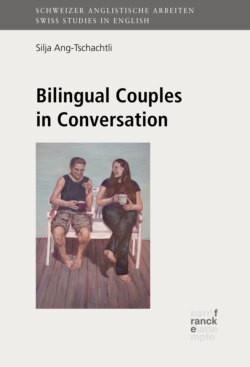Читать книгу Bilingual Couples in Conversation - Silja Ang-Tschachtli - Страница 19
На сайте Литреса книга снята с продажи.
3.2.3 Cultural challengeschallengescultural
ОглавлениеThe specific challenges faced by intercultural, bilingual couples depend very much on the linguistic, cultural and social backgrounds that are involved. As Rosenblatt observes, “[e]ach particular combination of cultures, social class, location where the couple lives, and so on creates a set of challenges, issues, and themes that might be quite different from what couples with other combinations of characteristics experience (Cottrell, 1990). In this sense, every intercultural couple needs its own theory” (2009: 3). Therefore, research on bilingual couples should take into account the specific socio-cultural backgroundcultural background of the partners, which it sometimes fails to do (Killian 2009: xviii). With regard to the current study, it should also be noted that English-German-speaking couples are often viewed as unproblematic due to the proximity of the two cultures, as they are thought to share a Western or European heritage (Piller 2002a: 6). There are, however, some issues which seem to surface again and again even in close intercultural relationships, which will be discussed in this section.
Since culture is so complex and difficult to separate from other factors, bicultural couples may not recognize that some of their differences are rooted in their cultures; conversely, they may attribute personal differences to their variant cultures when they are actually due to other factors. According to Perel,
conflicts often turn out to be more connected to culture than couples realize — although naturally intrapsychic sources of conflict are generally simultaneously at work. Other couples, on the other hand, often err by focusing exclusively on their cultural differences as the source of all pain, thereby eschewing taking responsibility for their actions. (2000: 196)
Indeed, not all issues potentially faced by bilingual, bicultural couples can be traced back to the fact that they are from different cultures or speak different languages. There may also be communication differences based on their social background, age, family background, or gender. The role of gender appears to be particularly prominent, and it has often been suggested that men and women differ in their styles of talking as well as in the role and importance they attribute to talk in their relationship (e.g. Cameron 1997; Tannen 1986). Thus, communicative difficulties may arise because of a combination of language, culture, gender and other factors.
